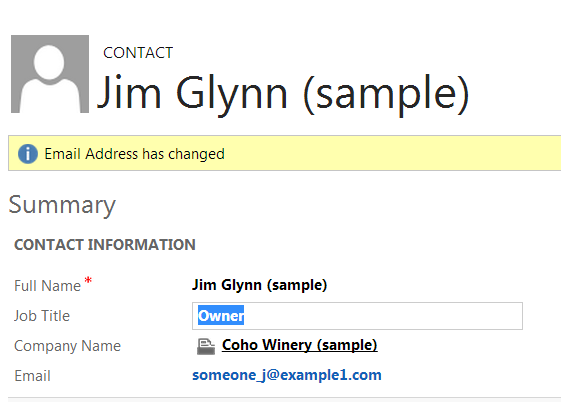Javascript development often takes the backseat, compared to C#, while extending Dynamics CRM. There are valid reasons for implementing a business logic as a plugin or a custom workflow step. But, in this post I will talk only about how to effectively manage and write Javascript code for Dynamics CRM. These are my primary objectives:
1.) Manage dependencies
2.) Control load sequence based on dependencies
3.) Promote code reuse
4.) Organise code effectively into manageable chunks
Dynamics CRM, doesn’t offer anything out-of-the box for accomplishing any of the above objectives. Ecmascript 6 will offer the much needed module feature1, but until all major browsers support Ecmascript 6, we can use any of the open-source script loaders. My framework of choice is require.js.
1.) Create JS web resources
2.) Add web resources to the form
3.) Add event handlers for form load, form save and field change
Javascript webresources may not load in the order specified in the form2. This could cause script errors if you are expecting the scripts to load in a certain order. It is also cumbersome to add all the required scripts and setting up the event handlers.
1.) Parse it in the url of the initial loading script
2.) Use the undocumented WEB_RESOURCE_ORG_VERSION_NUMBER4 global
1.) Require.js – Require JS library
2.) Main.js – Initial loading script
3.) Form_script.js – Form script, contains event handlers for form load, form save and field change
4.) Common_script.js – Script library to be reused throughout the CRM organisation
Here is how the solution webresources are organised.
We first have to add the first two scripts, inside Dynamics CRM.
Here is the console output during script load.
Now we will verify whether the field change event handler fires on change of email field.
Now we will verify if the form save event is firing.
We have now successfully used requirejs to load scripts in Dynamics CRM.
EDIT (23/01/15): Have a look at http://nycrmdev.blogspot.com.au/2015/01/an-alternative-approach-to-loading-form.html for supported option using IFrame.
References
1. http://www.2ality.com/2013/07/es6-modules.html
2. http://wiki.ecmascript.org/doku.php?id=harmony:modules
3. http://www.develop1.net/public/post/Asynchronous-loading-of-JavaScript-in-CRM-2013.aspx
4. http://www.develop1.net/public/post/CRM-Developer-e28098Must-Knowe28099-2-Web-Resource-Caching.aspx
1.) Manage dependencies
2.) Control load sequence based on dependencies
3.) Promote code reuse
4.) Organise code effectively into manageable chunks
Dynamics CRM, doesn’t offer anything out-of-the box for accomplishing any of the above objectives. Ecmascript 6 will offer the much needed module feature1, but until all major browsers support Ecmascript 6, we can use any of the open-source script loaders. My framework of choice is require.js.
Current Process
The current process for Dynamics CRM script development:1.) Create JS web resources
2.) Add web resources to the form
3.) Add event handlers for form load, form save and field change
Javascript webresources may not load in the order specified in the form2. This could cause script errors if you are expecting the scripts to load in a certain order. It is also cumbersome to add all the required scripts and setting up the event handlers.
Using require.js with Dynamics CRM 2013
RequireJS3 automatically loads dependent scripts/modules, when they are needed. Dynamics CRM, caching strategy4 means that we also need to know the magic string in the web resource url, so that we can use it in require.js. There are two ways to get this magic string:1.) Parse it in the url of the initial loading script
2.) Use the undocumented WEB_RESOURCE_ORG_VERSION_NUMBER4 global
Setup
I have the following scripts1.) Require.js – Require JS library
2.) Main.js – Initial loading script
3.) Form_script.js – Form script, contains event handlers for form load, form save and field change
4.) Common_script.js – Script library to be reused throughout the CRM organisation
Here is how the solution webresources are organised.
We first have to add the first two scripts, inside Dynamics CRM.
Here is the console output during script load.
Now we will verify whether the field change event handler fires on change of email field.
Now we will verify if the form save event is firing.
We have now successfully used requirejs to load scripts in Dynamics CRM.
EDIT (23/01/15): Have a look at http://nycrmdev.blogspot.com.au/2015/01/an-alternative-approach-to-loading-form.html for supported option using IFrame.
References
1. http://www.2ality.com/2013/07/es6-modules.html
2. http://wiki.ecmascript.org/doku.php?id=harmony:modules
3. http://www.develop1.net/public/post/Asynchronous-loading-of-JavaScript-in-CRM-2013.aspx
4. http://www.develop1.net/public/post/CRM-Developer-e28098Must-Knowe28099-2-Web-Resource-Caching.aspx





No comments:
Post a Comment